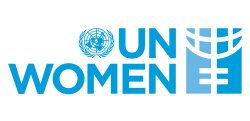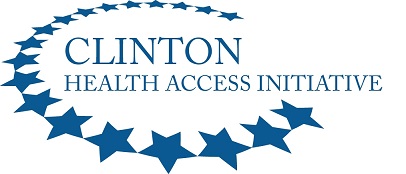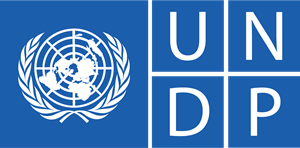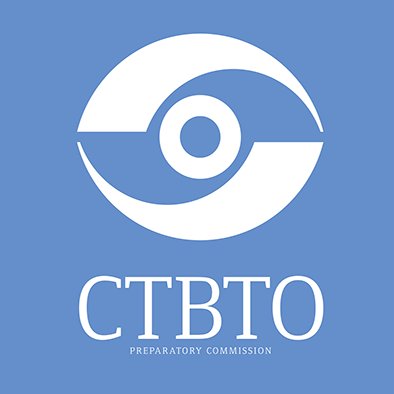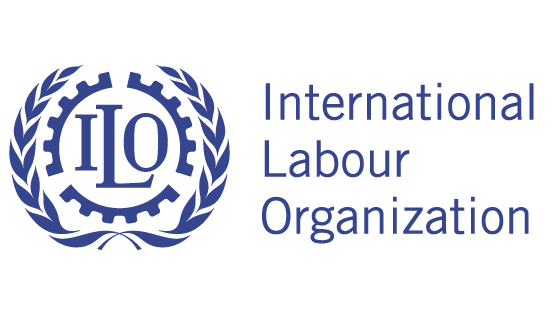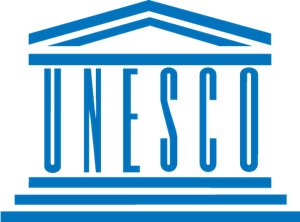About United Nations Population Fund (UNFPA)
With approximately 5,000 personnel, annual revenues of US dollars 1.5 billion, UNFPA is the lead UN agency for delivering a world where every pregnancy is wanted, every childbirth is safe and every young person's potential is fulfilled. UNFPA’s strategic plan (2022-2025), reaffirms the relevance of the current strategic direction of UNFPA and focuses on three transformative results: to end preventable maternal deaths; end unmet need for family planning; and end gender-based violence and harmful practices. These results capture our strategic commitments on accelerating progress towards realizing the International Conference on Population and Development (ICPD) and Sustainable Development Goals (SDGs) in the Decade of Action leading up to 2030. Our strategic plan calls upon UN Member States, organizations and individuals to “build forward better”, while addressing the negative impacts of the Covid-19 pandemic on women’s and girls’ access to sexual and reproductive health and reproductive rights, recover lost gains and realize our goals.
In a world where fundamental human rights are at risk, we need principled and ethical staff, who embody these international norms and standards, and who will defend them courageously and with full conviction.
UNFPA is seeking candidates that transform, inspire and deliver high impact and sustained results; we need staff who are transparent, exceptional in how they manage the resources entrusted to them and who commit to deliver excellence in programme results.
For more information, visit https://www.unfpa.org/
Role purpose
The Oversight Advisory Committee (OAC) constitutes a fiduciary oversight body of UNFPA and shall assist the Executive Director in fulfilling her/his responsibilities for accountability, risk management, internal controls, financial management and reporting, and the fiduciary oversight process, including external audit matters, internal audit, investigation and evaluation functions and ethics.
The primary role of the OAC is to advise the Executive Director, taking into account the organization’s process for monitoring compliance with the Regulations adopted by the UNFPA Governing Body and Rules promulgated thereunder.
Duties and Responsibilities
Authority
- The OAC has the authority and the responsibility to review any activity relevant to the Terms of Reference. This includes, but is not limited to:
- Seek any information and documents that it requires from external parties or employees – all of whom are directed to cooperate with the OAC’s requests;
- Ask any UNFPA official to assist the OAC with its discussions on any particular matter;
- Retain outside counsel or persons having special competence, as necessary;
- Meet with UNFPA’s officials, the United Nations Board of Auditors (External Auditor) or outside counsel, as necessary.
- The OAC will meet with the Executive Director, the Director of the Office of Audit and Investigation Services (OAIS), the External Auditor and the Ethics Advisor at least annually in separate private sessions. The OAC will also meet with the Director of the Evaluation Office (EO), the Chairperson of the Vendor Review Committee and the Chairperson of the Implementing Partners Review Committee at least annually.
Meetings
- The OAC will meet at least three times a year. For these meetings, a minimum of three members must be in attendance to constitute a quorum, whether in person or by means of remote communication.
- The OAC shall elect a Chairperson annually.
- The Chairperson may convene additional meetings (in person or virtual) as deemed necessary. For these additional meetings, at least three members must be in attendance to constitute a quorum.
- The Chairperson may designate a member to act in the Chairperson’s capacity.
- The Executive Director may ask the OAC to convene further meetings to discuss particular issues on which advice is sought.
Reporting
- The minutes of each meeting, including action points, shall be prepared by the secretariat and sent to the members of the OAC for approval.
- The OAC will report back to the Executive Director after each meeting.
- The OAC shall submit a report on its work for the previous year to the Executive Director each year; the report is provided to the Executive Board, appended to the annual report on internal audit and investigation activities, and is available to the public. Upon request by the Executive Board, the Chairperson shall present this report.
Interaction with the Executive Board
- The Chairperson of the OAC has free and unrestricted access to the Executive Board and its President.
- To facilitate interaction with the Executive Board, the Chairperson will be available to answer any questions or requests for clarification from Member States, on the OAC report, at the relevant informal and formal sessions of the Executive Board.
- The Executive Director will, on an annual basis, invite the OAC Chairperson and the President of the Executive Board to a trilateral meeting to discuss matters of shared interest.
Financial Management
- Review policies significantly impacting financial management and reporting.
- Review, as appropriate, the UNFPA financial statements and reports.
Strategy
- Bring to the attention of the Executive Director any strategic or otherwise significant opportunities and/or threats that the organization could take advantage of or mitigate against. These could include, inter alia:
- New directions and innovations in the world of finance and accounting e.g. innovative financing, digitalization, operational reform.
- Emerging and growing threats e.g. cyber security.
External Audit
- Discuss external audit work plans.
- Review relevant reports and management letters by the External Auditor, including reports on the UNFPA financial statements and related internal controls.
- Discuss internal controls and matters raised by the External Auditor.
- Review the adequacy of management response to the observations and recommendations of the External Auditor and assess the status of implementation thereof.
Risk Management
- Advise on risk management strategy and the internal control framework, processes and issues.
- Review any significant risk and exposure to UNFPA and the steps UNFPA management has taken to minimize or manage such risks, including compliance with policies and regulations.
- Advise on the UNFPA fraud prevention and detection policies and activities.
- Review the arrangements in place to raise concerns in confidence about fraud, ethics, conflict of interest, violations of rules and regulations, and other oversight matters, and how these are expedited.
- Review the process for ensuring regulatory compliance.
Office of Audit and Investigation Services (OAIS)
- Review OAIS, including the OAIS Charter, as well as the office’s scope, plans, activities, resources, staffing and organizational structure.
- Assess whether OAIS has sufficient authority, support and access to personnel, facilities and records to carry out its work without restrictions or limitations.
- Review relevant reports by OAIS.
- Discuss internal controls and matters raised in internal audits and investigations.
- Review the adequacy of management’s response to issues identified by the internal audit and investigation function and assess the status of implementation of recommendations made, including those of the vendor review and sanctions mechanism.
- In line with the UNFPA oversight policy, participate in, review and advise on the selection and any intended removal of the Director of the Office of Audit and Investigation Services (OAIS) prior to the end of the term of appointment and at least 30 days in advance of any such action being taken; and provide input to the performance assessment of the Director of OAIS.
Evaluation Office (EO)
- Review the office’s scope, plans, activities, resources, staffing and organizational structure.
- Assess whether the EO has sufficient authority, support and access to personnel, facilities and records to carry out its work without restrictions and limitations.
- Review relevant reports by the EO.
- Discuss matters raised in evaluations.
- Review the adequacy of management response to issues identified by the evaluation functions and assess the status of implementation of recommendations made.
Ethics Office
- Review the office’s scope, plans, activities, resources, staffing and organizational structure, including whistleblower protection and financial disclosure.
- Assess whether the Ethics Office has the requisite autonomy and support, as well as access (as relevant) to personnel and records, in order to carry out its work without restriction or limitation.
- Review relevant reports by the Ethics Office.
- Review the adequacy of management response to issues identified by the ethics functions and assess the status of implementation of recommendations made.
Membership Independence
- For a candidate member to be considered independent, she/he should be independent in character and judgment and may not have any material relationship with UNFPA. In addition, a candidate may not be considered prima facie independent, if she/he:
- Is or has been an employee of UNFPA, or served on its Executive Board, within the last three years.
- Is or has been a member, or has an immediate family member who is or has been a senior member of the Government of a Member State within the last three years.
- Has an immediate family member who is or has been a senior official of UNFPA within the last three years.
- Has received or has an immediate family member who has received during any 12-month period within the last three years more than USD 50,000 in direct compensation/fees from UNFPA, UNDP or UNOPS (other than OAC fees).
- Is a current employee of an entity in the United Nations system or an employee of a member of the United Nations Board of Auditors.
- Is, or has an immediate family member who is, a current director, executive officer, partner, employee or substantial shareholder (with 5 per cent or more ownership) of a company/organization that has made payments to or received payments from UNFPA, UNDP or UNOPS in any of the last three fiscal years.
- Holds any other Board mandates or Member State Government appointed position that might infringe on his/her independence.
- Each member of the OAC shall declare annually, or if circumstances change, the existence of any of the above relationships to the OAC Chair, who in turn will inform the Executive Director. The OAC Chair and the Executive Director shall then determine the independence of the member.
Qualifications and Experience
- Expertise in oversight (fiduciary and managerial, as defined in the UNFPA oversight policy), ethics and programme matters.
- Thought leader in global public health and development would be an asset.
- A strong understanding of the structure and functioning of the United Nations system and intergovernmental or international organisations.
- Independent in character and judgment, and may not have any material relationship with UNFPA.
- Private and public sector experience at the senior level.
- Gender balance and geographical representation.
- High leadership efficiency reflecting a strong leadership brand, intellectual agility, social and emotional intelligence, and the highest levels of integrity.
- Outstanding people and negotiation skills, as well as collaborative ability.
Terms of Appointment
- The UNFPA OAC will be recruited for an initial term of three years, renewable once. Membership will be staggered to provide continuity.
- Members of the OAC serve in their personal capacity and not as representatives of a Government, an institution, corporate body or any other authority external to UNFPA. They are Individual Consultants to UNFPA and neither "staff members" under the Staff Regulations of the United Nations, nor "officials" for the purpose of the Convention on the Privileges and Immunities of the United Nations, dated 13 February 1946.
- Members of the OAC will receive from UNFPA a fee for Committee services performed in order to compensate them for the time needed to fulfil their responsibilities under these Terms of Reference. Special consideration should be given to the extra responsibilities of the Chairperson.
- Members of the OAC will be reimbursed for any travel, subsistence and communications costs that are necessarily incurred in relation to their activities as members of the OAC.
- Stipend will be paid on an annual basis.
- Travel and daily subsistence allowance (DSA) will be fully covered.
Role Location
- Flexible/Remote, but would be required to attend meetings either in New York or virtually.
To view the complete job description and apply to this position, click "Apply Now" below.

